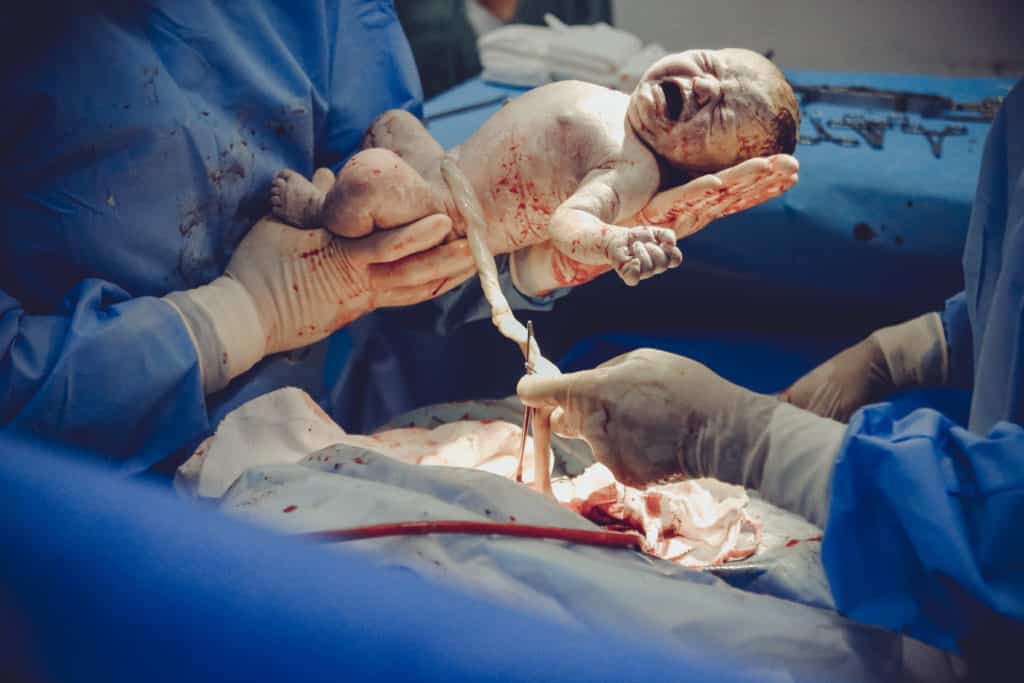It was sudden and very, very, unexpected.
The first contractions had not been so intense, so you had waved it off as nothing serious. Soon enough, you realize your shocking mistake just as you feel something wet trickle down between your legs
Your water just broke!
This could not be happening; Due Date isn’t due for another 4 weeks. In fact, the nursery is still under construction and no hospital bag has been packed.
Your husband isn’t even around! He traveled a week ago and was scheduled to return next week. Nevertheless, your baby is ready to come out with immediate effect!
According to the calender, its way too early for you to deliver; So you can’t help wondering: “Would my baby be fine?” “Will I be induced?”

Source: Shutterstock
WHEN ARE YOU PREMATURE?
Most pregnancies last for about 40 weeks.
However, this varies among various women as a baby may be born earlier or later than this. A child before 37 weeks is regarded as premature (fondly called preemie). A baby born after 42 weeks is considered to be over due or post-term.
WHAT ARE THE POSSIBLE COMPLICATIONS?
A lot of babies born premature do go on to live healthy, normal lives. However, there are still serious health risks associated with being born premature.
The earlier a baby is born, the higher the risks of complications. These complications may range from mild to severe. They may appear at birth, or develop later in life.
Some possible complications in the first weeks include:
- Breathing Difficulties: Most babies born at 36weeks have an underdeveloped respiratory system. This puts them at a higher risk of having breathing problems. Their breathing may seem laboured, a condition called “respiratory distress syndrome”.
- Feeding Problems: Premature babies lack reflexes such as swallowing or sucking. This makes feeding them particularly more difficult.
- Heart Problems: Premature babies are also at risk of having heart problems such as a hole in the heart or low blood pressure. If left untreated, these complications may become more severe and lead to heart failure.
- Brain problems: A baby born too early is at risk of suffering a brain bleed. However, this is usually mild and resolves without causing any serious problems. In some severe cases though, a brain bleed can lead to permanent brain damage.
- Temperature Regulation Problems: Babies born premature have a problem maintaining normal body temperature. They lose heat rapidly but can not generate enough heat to match the loss. That is why doctors recommend incubators to provide the needed heat for premature babies.

- Blood Disorders: Premature babies may be born with low blood levels. They may also suffer from jaundice; yellowing of the eyes and skin.
- Immune System Problems: This is one of the most common problems premature babies face. Their immune system is underdeveloped. This makes them prone to infections.
Other Complications Include;
- Developmental delays or special needs
- Vision problems.
- Hearing disabilities
- Dental issues
- Behavioral and psychological issues
- Other chronic health problems e.g. asthma

Source: Shutterstock
WHAT ARE THE RISK FACTORS?
The exact cause of why some babies are born premature is often unknown. However, there are some known risk factors. Some of these include;
- Being overweight or underweight before pregnancy
- History of premature births, miscarriages, or abortions
- Multiple pregnancy e.g twins, triplets, e.t.c.
- Poorly spaced pregnancies (with less than 6months interval between consecutive pregnancies)
- Conception through In Vitro Fertilisation
- Smoking or drug abuse during pregnancy
- Problems with the womb or placenta
- Some medical conditions e.g high blood pressure and diabetes
- Excessive physical or emotional stress during pregnancy
CAN IT BE PREVENTED?
A common way to reduce the risk of having a premature baby is by having a cervical cerclage. This is a surgical procedure done during pregnancy to close the cervix with strong sutures. It is also called a cervical stitch. This may provide extra support for the uterus and cervix and thus prevent premature labour.
Thanks to advances in medicine, premature babies have a better chance of survival now. With proper medical care and attention, they do eventually live very healthy lives.
If your baby is premature, you need not worry too much. Follow the doctors advice and you and your baby would be fine.
REFERENCES
- Healthline Parenthood 2016, Premature Infant, Healthline Parenthood, Viewed on July 22, 2020, <https://www.healthline.com/health/pregnancy/premature-infant>.
- Mayo Clinic Staff 2017, Premature Birth, Mayo Clinic, Viewed on July 22, 2020,<https://www.mayoclinic.org/diseases-conditions/premature-birth/symptoms-causes/syc-20376730>.
- Shutterstock

